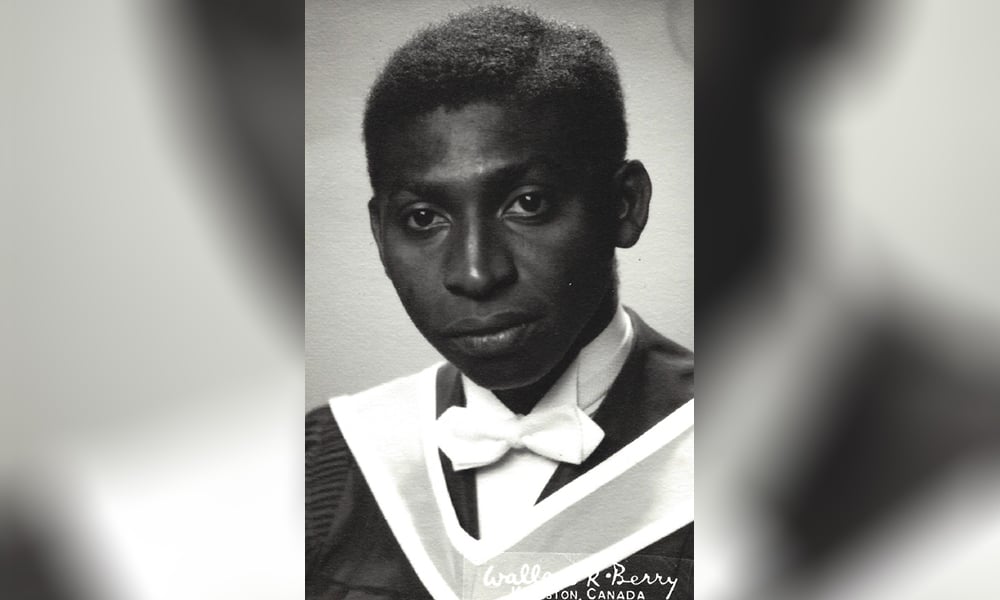
Bursary will honour Cecil Fraser, first Black Queen’s Law student and graduate, in class of 1961

Queen’s University law school will soon be offering a bursary for Black JD students, an initiative that was spearheaded by two Queen’s student associations.
The Black Law Students’ Association - Queen’s Chapter and Queen’s Pre-Law Society initiated the bursary, which is named after Cecil Allan Fraser, Q.C., the first Black Queen’s Law student and graduate, in the class of 1961.
Nigel Masenda, who was president of the Black Law Students’ Association – Queen’s Chapter and graduated from Queen’s Law in May , came up with the idea for the bursary last year and, after partnering with the Queen’s Pre-Law Society in May and reaching out to both clubs’ networks, alumni and other organizations, was successful in raising sufficient funds to offer the bursary.
“We’re really grateful to our students,” Queen’s Law Dean Mark Walters told Canadian Lawyer. “They’ve taken an amazing lead on a project that will have, I hope, a real benefit to subsequent generations of students.”
Queen’s Law pledged to match the funds raised, and will contribute $100,000 toward the bursary fund, Dean Walters said. “The more people are involved in this kind of project the more successful it will be, so we're quite pleased with the response so far.”
The lead gift came from the BlackNorth Initiative of the Canadian Council of Business Leaders Against Anti-Black Systemic Racism, which was launched to increase the representation of Blacks in boardrooms and executive suites across Canada and to remove systemic barriers that affect Black Canadians.
Regarding the BlackNorth Initiative, says Walters, “this is a partnership that we hope will continue beyond just the very generous gifts that they've given. They're interested in working … with organizations of all kinds on an ongoing basis to remove barriers for Black people [and address] issues of anti-Black racism.
“As a law school, I think we have a special responsibility … to look at ourselves and see what we can do to address these deep societal problems. A bursary like this is just one aspect to more consciously address some of these larger issues.”
Masenda and others were deeply concerned “about the fact that numbers of Black students in the faculty remained pretty low,” says Walters. Although 30 to 35 per cent of Queen’s Law students identify as members of a racialized group, only one per cent identify as Black. That has been a concern for some time, Walters adds, for the school and the students, who would like to see “that the population of students at Queen's Law reflects the diversity of the population in Ontario and Canada.
“We’re really interested in improving the diversity of the student population here. When students are here, they find this a welcoming place.”
The terms of the bursary give priority to Black students, but it is open to other students of racialized minorities who also face hurdles and barriers. It will support any student in the course of their studies; it is needs-based rather than a scholarship, and targeted at students who would otherwise find the costs associated with law school difficult, says Walters.
The bursary honours Cecil Fraser, who after graduating from Queen’s Law went directly into the federal civil service as a senior solicitor in Ottawa, where he enjoyed a successful legal career. In 1992 he was awarded the Commemorative Medal for the 125th Anniversary of the Confederation of Canada in recognition of his significant contributions to his fellow citizens, to his community, and to Canada. He and his wife, Rose, had three sons and a daughter, of which their eldest, Hugh Fraser, served as a justice of the Ontario Court in Ottawa for 25 years. Cecil Fraser died in 1994.
Queen’s Law joins other Canadian law schools, including those at the University of Toronto and the University of Ottawa, in offering bursaries for Black students.